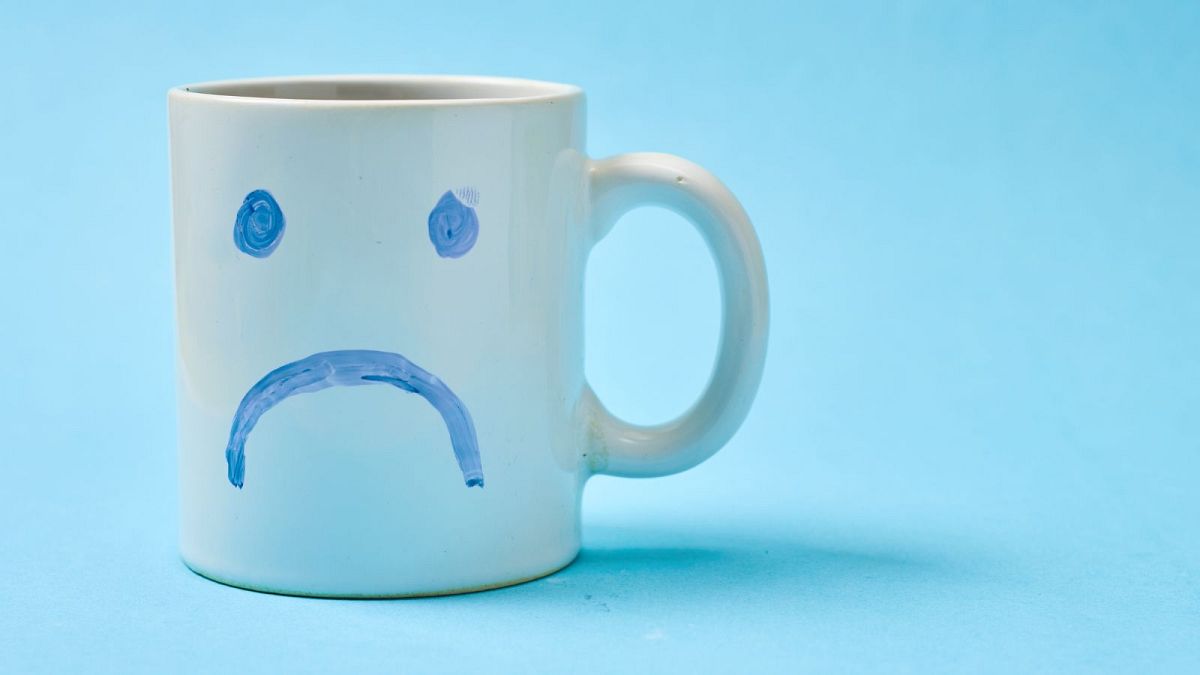Though there’s no scientific evidence proving that ‘Blue Monday’ is the most depressing day of the year, there’s no doubt that the winter blues are real.
If you’re a glass-half-full kind of person, you might have noticed that since December 21, the days are finally getting longer.
But if you’re a glass-half-empty kind of person, or simply a realist, it’s probably hard for you to ignore that we’re at the peak of winter, when temperatures are miserably cold, workers wake up in that same darkness that greets them when they leave their office at 5 pm, and there are no big holidays to look forward to in the near term.
While December is full of distractions to make us forget that, deep down, it’s just another month of relentless cold, January comes with no festive embellishment. It’s cold, it’s dark, and it’s usually pretty bleak – mostly because it comes as a punch in the face from reality after being coddled by the Christmas holiday season.
January 16 is known as “Blue Monday”, said to be the most depressing day of the year. But whether that is true or not (scientifically, Blue Monday is as sad as Friday the 13th is unlucky), there’s no denying that January is a tough month for many.
It’s the time when many people report suffering from seasonal affective disorder (also known as SAD, quite fittingly), according to the UK National Health Service. SAD, also called “winter depression”, is a type of depression that affects people during the cold season and whose symptoms usually include low mood, irritability, loss of pleasure and interest in everyday activities, craving carbs and gaining weight, feeling lethargic and even experiencing despair.
These symptoms can be quite severe among those suffering from SAD and have a significant impact on their day-to-day activities. Many struggle to cope with these feelings, which scientists think might be linked to a lack of exposure to sunlight.
As we get less sunshine in autumn and winter days, experts think our levels of melatonin shoot up, making us sleepier, and our levels of serotonin drop, making us hungrier and essentially grumpier.
If you’re feeling SAD, here are a few ways you can help yourself cope with the winter blues without taking any medication.
Get as much sunshine as you can
Experts recommend that you chase the sunshine as much as you can, trying to make up for the lack of sun exposure linked to the shorter winter days. In countries where winters are damp and rainy, this might not be easy at all, but that’s all the more reason to take advantage of every opportunity coming your way.
When the sun comes out, take a break from work and go for a walk, or simply sit or stand near a window wherever you are.
Make your space as bright and airy as possible
To beat the winter blues, it’s important to make your space – be it the bedroom where you wake up, your home office or your workplace, if you can – as bright and airy as possible to make up for the gloominess outside.
If you can, set up your working space close to a window, so that the light coming from outside will help you feel more energetic and alert.
Exercise regularly
Exercising with the cold wind blowing in your face might be the last thing you want to do in winter, but physical activity has a great beneficial impact on our mental health as well as our body.
Feeling depressed might put you off from exercising, which makes getting out there all the more difficult. But if you can convince yourself to go for a run (or a climb, a cycle, etc.), you’ll soon reap the rewards of your efforts: regular exercise is known to be a mood booster and be particularly helpful to people with mild depression.
Any kind of exercise will do, even indoors, but if you can manage to do some physical activity while outdoors and while the sun is shining, even better.
Eat healthy and regularly
While winter is usually considered the time to indulge in comfort food, experts say that keeping a healthy diet might help us cope with the symptoms of winter depression. Make sure to balance out all your body needs - carbohydrates, proteins, fibres – while prioritising energetic but healthy food like nuts and berries.
Fatty fish (like mackerel, sardines, tuna and salmon), dark green leafy vegetables and dark chocolate are known to improve mood and decrease symptoms of depression. As a plus, some among people’s favourite dark green leafy vegetables (including spinach) are seasonally available.
Winter also has a way of messing up with our body’s internal clock, so it’s important to keep eating at regular times and not cave into too much extra snacking.
Talk to your friends
While feeling depressed and lethargic can make us less willing to head out of the house and socialise, experts recommend those suffering from winter blues keep in touch with their friends and create occasions to have fun and forget about the miserable weather outside.
Whether you want to share how you’re feeling with your friends (they might be feeling the same!) or forget about it entirely, talking to a loved one or even simply chit-chatting with a neighbour or a store clerk can have a wonderful impact on our mood, putting us out of our doom-and-gloom attitude.
Try vitamins
There are a lot of vitamins that can help us improve our energy level when we’re feeling fatigued. Experts recommend that people suffering from SAD try vitamin D, the so-called “sunshine vitamin” which has been produced on our planet for over 500 million years.
In mild cases of depression, taking vitamin D has been linked to improved mood and energy levels.
Try light therapy
Some find that the best way to compensate for the lack of sunshine is to soak in artificial light. There’s mixed evidence that light therapy – the daily exposure to a very bright light provided by an especially designed and medically certified light box for at least 20 minutes – actually works to reduce the symptoms of SAD, but some studies have concluded that it’s effective, especially when used first thing in the morning.
If you don’t feel like committing to light therapy, most people try sunrise alarm clocks, which gradually light up the room – a little like an artificial sun – once your alarm rings. Unfortunately, these devices are still quite expensive.





